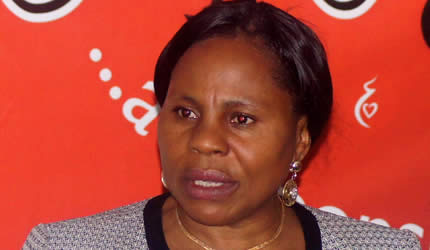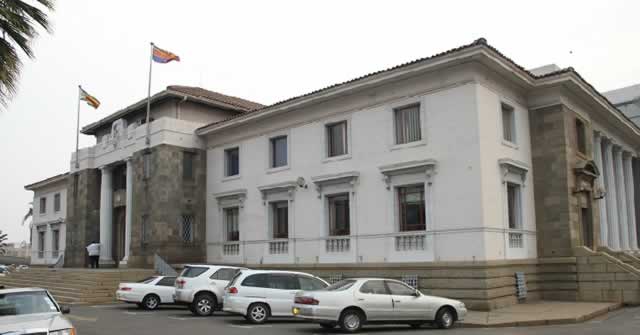Has increase in women reps added value to Parly?

Lloyd Gumbo Mr Speaker Sir
Several studies have concluded that female politicians are likely to focus on issues that affect women more than any other social category.
Some of the issues the studies put forward are to do with gender equality, sexual reproductive health rights and the general upkeep of women.
As such, when Zanu-PF, MDC-T and MDC agreed during the Constitution-making process that there would be an extra 60 seats reserved for women in the National Assembly under proportional representation as well as a “Zebra system” of starting with a woman in the Senate, this was met with fanfare among women and feminist civic society organisations.
They expected that increased female representation would bring a new gender dimension that was not always considered in Parliament.
Women expected that whatever motion would be brought up for debate would be analysed to look at the gender aspect so that their representatives would raise issues that affect them.
Most people thought discourse would change in both Houses now that there would be more women who would articulate women’s issues with vigour.
Now questions are being asked: has the increase in numbers transformed women’s lives especially around empowerment, particularly for those in rural areas?
Do women feel better represented now that numbers have been increased?
Are these not just hollow gains that have nothing to do with women but those who put them there for political expediency?
It is unfortunate that eight months into the session, discourse has remained the same. Rarely are women’s issues raised.
There are only a few female legislators who when they stand up to debate any motion or during committees, always look at the gender aspect to ensure they fully represent their womenfolk.
Only a few have consistently done so, among them Monica Mutsvangwa, Beatrice Nyamupinga, Jessie Majome, Ruth Labode, Thokozani Khupe, Melody Dziva and Annastanciah Ndhlovu.
These are women who were cut from a different cloth from the rest as they always raise issues that have to do with women while the rest have the patriarchal system internalised in them.
Ironically, most of those who seem to understand that they are there to push for gender equality are women who did not come through proportional representation. There are a number of other positive provisions in the Supreme law of the land that are meant to promote gender equality, which is the reason some people describe it as a women’s Constitution.
But why has the quality of discourse not changed that much despite the increase in numbers?
If truth be told without fear or favour, most of the women who came through the proportional representation do not appreciate the objectives of that provision.
Some of them may have just come through to make numbers because of their connections to some senior men in their political parties except a few with strong feminist backgrounds.
It should be understood that the 60 extra seats provision came as part of affirmative action, as such, those seats must have gone to women with considerable feminist experience within and without Parliament.
While Government has come up with a number of interventions to emancipate women from the yokes of patriarchy, a lot still needs to be done to ensure that women participate as equal partners, not second class citizens in the political, social and economic ladders.
Society, drunk from its domination by men, has tended to make the exclusion of women in the decision-making process part of nature.
It is out of such a background that Zimbabwe — under the new progressive Constitution — has made a deliberate effort to include women in decision-making processs through deliberative affirmative action.
A number of Bills have been passed while several protocols have been ratified to promote gender equality.
This was done in the hope that women would in the end act as chief spokespersons in the campaign for the improvement in the legal rights of women in connection with marriage, divorce and ownership of property.
Having these things on paper (Constitution) does not translate into improved living conditions for women.
There is need for effective women to then follow up and ensure that these provisions are implemented.
Majome raised an important point at a workshop organised by the Women’s Trust and Research and Advocacy Unit on Wednesday in Harare when she said there was need for women to understand the Constitution for them to fully benefit from its provisions.
If they do not do that, they will remain “rich-paupers”.
The election of many women and their appointment to decision-making positions was intended to enlarge the reservoir of talent and competence.
It was meant to show that we are all equal citizens with equal rights and opportunities without our biological make-up prejudicing either of us.
But eights months down the line, where are we?
Can we pinpoint at what our honorable women have done to improve the lives of their own lot or are still hiding behind the patriarchal debate except for contributions by the few women mentioned earlier?
In trying to address the issues of inequality and unfair relationship between men and women, we should also have stressed the issue of quality within thought processes.
Surely there cannot be equality between the two without talk of quality.
A careful look at some of the deliberations and motions sponsored by women on behalf of other women out there who cannot be heard, shows a total deficiency in appreciating the position of women.
We are all agreed that access to positions of power and authority is difficult for women, it is unequal to women, the other sex tends to be subordinated at best and oppressed at worst in most quarters of this world.
There is a serious need to capacitate women so that they understand how to tackle issues in Parliament with an eye on gender.
We should be alive to the fact that our female MPs come from different backgrounds where the patriarchal system is heavily internalised in them that it will take a deliverance session to free them.
The Women’s Parliamentary Caucus could play a major role in changing the discourse by conscientising female MPs of the gender aspects in every motion so that when they debate, they are able to raise the right issues that affect women.
A pool of expertise from feminist organisations must also help them to unpack motions and identify gender aspects so that they argue their case from an informed position lest they risk further ridicule.










Comments